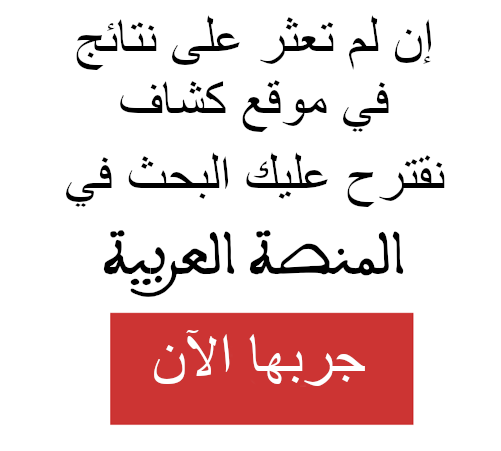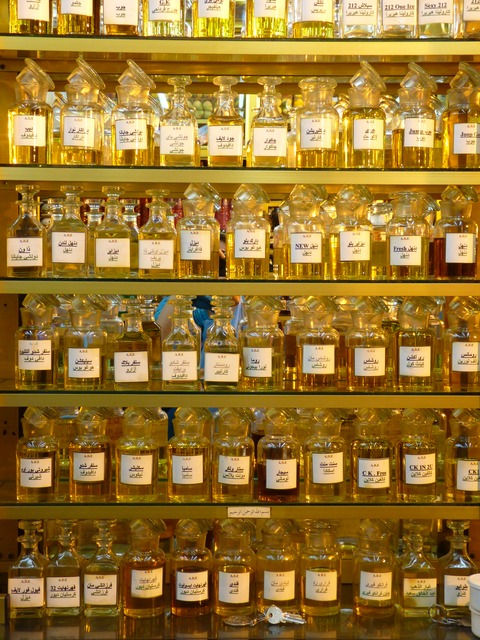حقوق المرأة
| حقوق |
|---|
| الفروق النظرية |
|
حقوق طبيعية وقانونية حقوق منادىة وحقوق تحررية حقوق سلبية وحقوق إيجابية حقوق فردية وحقوق جماعية |
| أقسام حقوق الإنسان |
|
مدنية وسياسية إقتصادية, إجتماعية وثقافية |
| أصحاب الحقوق |
|
الحيوان • حقوق الإنسان |
| مجموعات حقوقية أخرى |
|
المؤلفين • رقمية • العمال لغوية • الإنجاب |
مصطلح حقوق المرأة تشير إلى الحريات وحقوق للنساء والفتيات من جميع الأعمار. هذه الحقوق قد تكون أولا تكون مؤسسية, فإن تجاهلها أوقمعها بالقانون, أوبالعادات والتصرفات في مجتمع بعينه. هذه الحريات صنفت وأضحت متباينة في مجموعة واحدة من أوسع مفاهيم حقوق الإنسان لأنه غالبا ما تختلف عن الحريات التي يتمتع بها أصلا أوالمعترف بها للرجال والفتيان, ولأن النشطاء في هذا المجال تدعى المطالبة بتحيز أصيل وتاريخى ضد ممارسة أى حقوق لدى المرأة والفتيات .
المسائل المرتبطة بمفاهيم حقوق المرأة ، وتضم ، وإن كانت لا تقتصر عليها ، والحق في السلامة الجسدية والاستقلال الذاتي ؛ التصويت (الاقتراع) ، وفي شغل الوظائف العامة ، وإلى العمل وتقاضى الأجور العادلة أوالمساواة في الأجر ؛ التملك والحق في التعليم; الإنخراط في الجنديةوحتىقد يكون المجندون لهم الحق للدخول في عقود قانونية; وحقوق الزواج والأبوة والحقوق الدينية. المرأة وأنصارهافي بعض الأماكن ، ومواصلة العمل من أجل نفس حقوق الرجال الحديثة .
التاريخ
خلفية تاريخية
على الرغم من فترة طويلة نسبيا شعرت المرأةالأنجلوسكسونية بقدر أكبر من الحرية، وحتى منتصف القرن التاسع عشر ، والكتاب إفترضوا إلى حد كبير حتى النظام الأبوي هوالنظام الطبيعي الذي كان قائماخطأ استشهاد: إغلاق </ref> مفقود لوسم <ref> هذا ليس تحديا خطيرا حتى القرن الثامن عشرة عندما عثر جيسويت التبشيريون حتى matrilineality أناس أميركا الشمالية المحليون.
فى العصور الوسطى, في وقت مبكر جهود لتحسين وضع المرأة في الإسلام سقطت خلال وقت مبكر في إطار الإصلاحات في الإسلام عندما أعطيت المرأة المزيد من الحقوق في زواج ،الطلاق والميراث. المرأة يتفق مع هذا الوضع القانوني في الثقافات الأخرى ، بما في الغرب, منذ قرون وحتى وقت لاحق. قاموس أوكسفورد الإسلام إذا تحسن عام لأحوال المرأة العربية بخصوص حظر وأد البنات ، والاعترافات الكاملة للمرأة بكامل شخصيتها..مهر ، وتعتبر في السابق العروس الثمن الذي دفعه للأب ، وأصبح هدية عرس تحتفظ بها الزوجة بوصفها جزءا من ممتلكاتها الشخصية." تحت القانون الإسلامي ، والزواج لم يعد ينظر إليها على أنها "حالة" بل "عقد" ، والمرأة التي لا بد من موافقة الأقارب. "أعطيت المرأة حقوق الميراث المجتمع الأبوي التي كانت مقتصرة في السابق على الرجل في الميراث." ينص أنيماريا شيميل على أنه "قياسا إلى ما قبل الإسلام فإن وضع المرأة ، في التشريع الإسلامي يعني وجود تقدم هائل وللمرأة الحق على الأقل وفقا رسالة القانون في إدارةالثروة التى جلبتها إلى أسرة أويكسب بلدها ." ووفقا للأستاذ ويليام مونتغمري وات, عندما ينظر إليها في هذا السياق التاريخي ، "يمكن اعتبار هذا الرقم الذين شهدوا نيابة عن حقوق المرأة."
Some have claimed that women generally had more legal rights under Islamic law than they did under Western legal systems until more recent times. English Common Law transferred property held by a wife at the time of a marriage to her husband, which contrasted with the Sura: "Unto men (of the family) belongs a share of that which Parents and near kindred leave, and unto women a share of that which parents and near kindred leave, whether it be a little or much - a determinate share" (Quran 4:7), albeit maintaining that husbands were solely responsible for the maintenance and leadership of his wife and family. "French married women, unlike their Muslim sisters, suffered from restrictions on their legal capacity which were removed only in 1965."
In the 16th century, the Reformation in Europe allowed more women to add their voices, including the English writers Jane Anger, Aemilia Lanyer, and the prophetess Anna Trapnell. However, it has been claimed that the Dissolution and resulting closure of convents had deprived many such women of one path to education. Giving voice in the secular context became more difficult when deprived of the rationale and protection of divine inspiration. Queen Elizabeth I demonstrated leadership amongst women, even if she was unsupportive of their causes, and subsequently became a role model for the education of women.
The Enlightenment and A Vindication of the Rights of Woman
The Age of Enlightenment was characterized by secular intellectual reasoning, and a flowering of philosophical writing. The most important feminist writer of the time was Mary Wollstonecraft, often described as the first feminist philosopher. In A Vindication of the Rights of Woman (1792) Wollstonecraft argued that it was the education and upbringing of women that created limited expectations. Despite some inconsistencies (Brody refers to the "Two Wollestoncrafts" ) reflective of problems that had no easy answers, this book remains a foundation stone of feminist thought.
In other parts of Europe, Hedvig Charlotta Nordenflycht was writing in Sweden, and what is thought to be the first scientific society for women was founded in Middelburg, in the south of Holland in 1785. This was the Natuurkundig Genootschap der Dames (Women's Society for Natural Knowledge). which met regularly until 1881, finally dissolving in 1887. However Deborah Crocker and Sethanne Howard point out that women have been scientists for 4,000 years. Journals for women which focused on science became popular during this period as well.
Suffrage, the right to vote
The ideas that were planted in the late 1700s took root during the 1800s. Women began to agitate for the right to vote and participate in government and law making. The ideals of Women's suffrage developed alongside that of universal suffrage, and women's movements took lessons from those in other countries. Today women's suffrage is considered a right (under the Convention on the Elimination of All Forms of Discrimination Against Women), although a few countries, mainly in the Middle East, continue to deny voting rights to women.
United States
American women advocated women's right to vote from the 1820s onward. One colonial forerunner, Lydia Chapin Taft was granted the right to vote in 1756 by the town of Uxbridge, Massachusetts colony. In the United States, this was first achieved in the relatively sparsely-populated territories of Wyoming (1869) and briefly in Utah (1870), although Utah women were disenfranchised by the U.S. Congress in 1887. The push to grant women's suffrage in Utah was at least partially fueled by outsiders' belief that, given the right to vote, Utah women would dispose of polygamy. After Utah women exercised their suffrage rights in favor of polygamy the U.S. Congress disenfranchised Utah women. Other territories and states granted women the right to vote in the late 19th and early 20th centuries, but national women's suffrage did not come until the Nineteenth Amendment to the United States Constitution was ratified in 1920.
United Kingdom
For many years the ability to vote was restricted to wealthy property owners within British jurisdictions. This arrangement implicitly excluded women as property law and marriage law gave males ownership rights at marriage or inheritance until the 19th century. Although male suffrage broadened during the century, women were explicitly prohibited from voting nationally and locally in the 1830s by a Reform Act and the Municipal Corporations Act. Throughout the 19th century women reformers developed their own dialogue through many various groups until, by 1903, they had formed into two distinct organisations; the democratic National Union of Women's Suffrage Societies, and the militant Women's Social and Political Union. Leaders in the struggle were the peaceful Millicent Fawcett and radical Emmeline Pankhurst with her daughter Christabel. Their fight also proved slow and frustrating. In 1918 the British Parliament finally passed a bill allowing women over the age of 30 to vote. In 1928 the age limit was lowered to 21.
Other examples
Women first won the right to vote in New Zealand in 1893, in Australia in 1902, and in Finland in 1906, preceding the United States and Britain in affirming full voting rights. However, in some of these countries only women in the ruling population were able to vote at first. For example, Aboriginal women in Australia were not allowed to vote until they became citizens in 1967. Many other nations have proved much slower to change. For example, in Switzerland women gained the right to vote only in February 1, 1959, after a referendum on women's suffrage.
Modern movement
Please help improve this article or section by expanding it. Further information might be found on the talk page or at requests for expansion. (June 2008) |
In the subsequent decades women's rights again became an important issue in the English speaking world. By the 1960s the movement was called "feminism" or "women's liberation." Reformers wanted the same pay as men, equal rights in law, and the freedom to plan their families or not have children at all. Their efforts were met with mixed results.
In the UK a public groundswell of opinion in favour of legal equality had gained pace, partly through the extensive employment of women in men's traditional roles during both world wars. By the 1960s the legislative process was being readied, tracing through MP Willie Hamilton's select committee report, his Equal Pay For Equal Work Bill, the creation of a Sex Discrimination Board, Lady Sear's draft sex anti-discrimination bill, a government Green Paper of 1973, until 1975 when the first British Sex Discrimination Act, an Equal Pay Act, and an Equal Opportunities Commission came into force. With encouragement from the UK government, the other countries of the EEC soon followed suit with an agreement to ensure that discrimination laws would be phased out across the European Community.
In the USA, the US National Organization for Women (NOW) was created in 1966 with the purpose of bringing about equality for all women. NOW was one important group that fought for the Equal Rights Amendment (ERA). This amendment stated that "equality of rights under the law shall not be denied or abridged by the United States or any state on account of sex." But there was disagreement on how the proposed amendment would be understood. Supporters believed it would guarantee women equal treatment. But critics feared it might deny women the right be financially supported by their husbands. The amendment died in 1982 because not enough states had ratified it. ERAs have been included in subsequent Congresses, but have still failed to be ratified.
In the last three decades of the 20th century, Western women knew a new freedom through birth control, which enabled women to plan their adult lives, often making way for both career and family. The movement had been started in the 1910s by US pioneering social reformer Margaret Sanger and in the UK and internationally by Marie Stopes.
Over the course of the 20th century women took on a greater role in society. For example, many women served in government. In the U.S. government some served as U.S. Senators and others as members of the U.S. Cabinet. Many women took advantage of opportunities to become educated. In the United States at the beginning of the 20th century less than 20% of all college degrees were earned by women. By the end of the century this figure had risen to about 50%.
Opportunities also expanded in the workplace. Fields such as medicine, law, and science opened to include more women. At the beginning of the 20th century about 5% of the doctors in the United States were women. As of 2006, over 38% of all doctors in the United States were women, and today, women make almost 50% of the medical student population. While the numbers of women in these fields increased, many women still continued to hold clerical, factory, retail, or service jobs. For example, they worked as office assistants, on assembly lines, or as cooks.
United Nations and womens' rights
In 1946 the United Nations established a Commission on the Status of Women. Originally as the Section on the Status of Women, Human Rights Division, Department of Social Affairs, and now part of the Economic and Social Council (ECOSOC). Since 1975 the UN has held a series of world conferences on women's issues, starting with the World Conference of the International Women's Year in Mexico City. These conferences created an international forum for women's rights, but also illustrated divisions between women of different cultures and the difficulties of attempting to apply principles universally Emerging from the 1985 Nairobi conference was a realization that feminism is not monolithic but "constitutes the political expression of the concerns and interests of women from different regions, classes, nationalities, and ethnic backgrounds. There is and must be a diversity of feminisms, responsive to the different needs and concerns of women, and defined by them for themselves. This diversity builds on a common opposition to gender oppression and hierarchy which, however, is only the first step in articulating and acting upon a political agenda." At the Fourth World Conference on Women in Beijing, The Platform for Action was signed. This included a commitment to achieve "gender equality and the empowerment of women".
Convention on the Elimination of All Forms of Discrimination Against Women
The Universal Declaration of Human Rights, adopted in 1948, enshrines "the equal rights of men and women", and addressed both the equality and equity issues. In 1979 the United Nations General Assembly adopted the Convention on the Elimination of All Forms of Discrimination against Women (CEDAW). Described as an international bill of rights for women, it came into force on ثلاثة September 1981. The الولايات المتحدة is the only developed nation that has not ratified the CEDAW.
The Convention defines discrimination against women in the following terms:
Any distinction, exclusion or restriction made on the basis of sex which has the effect or purpose of impairing or nullifying the recognition, enjoyment or exercise by women, irrespective of their marital status, on a basis of equality of men and women, of human rights and fundamental freedoms in the political, economic, social, cultural, civil or any other field.
It also establishes an agenda of action for putting an end to sex-based discrimination: States ratifying the Convention are required to enshrine gender equality into their domestic legislation, repeal all discriminatory provisions in their laws, and enact new provisions to guard against discrimination against women. They must also establish tribunals and public institutions to guarantee women effective protection against discrimination, and take steps to eliminate all forms of discrimination practiced against women by individuals, organizations, and enterprises.
The CEDAW has been controversial for statements seen by some[] as promoting radical feminism. Particularly referenced is a 2000 report which said that in Belarus, "the Committee is concerned by the continuing prevalence of sex-role stereotypes and by the reintroduction of such symbols as a Mothers' Day and a Mothers' Award, which it sees as encouraging women's traditional roles."
Maputo Protocol
The Protocol to the African Charter on Human and Peoples’ Rights on the Rights of Women in Africa, better known as the Maputo Protocol, was adopted by the African Union on 11 July 2003 at its second summit in Maputo, Mozambique. On 25 November 2005, having been ratified by the required 15 member nations of the African Union, the protocol entered into force. The protocol guarantees comprehensive rights to women including the right to take part in the political process, to social and political equality with men, and to control of their reproductive health, and an end to female genital mutilation
Reproductive rights
Reproductive rights are rights relating to sexual reproduction and reproductive health. "Reproductive rights" are not recognised in international human rights law and is used as an umbrella term that may include some or all of the following rights: the right to legal or safe abortion, the right to control one's reproductive functions, the right to access quality reproductive healthcare, and the right to education and access in order to make reproductive choices free from coercion, discrimination, and violence. Reproductive rights may also be understood to include education about contraception and sexually transmitted infections, and freedom from coerced sterilization and contraception, protection from gender-based practices such as female genital cutting, or FGC, and male genital mutilation, or MGM.
Reproductive rights are understood as rights of both men and women, but are most frequently advanced as women's rights. The United Nations Population Fund (UNPF) and the World Health Organization (WHO) advocate for reproductive rights with a primary emphasis on women's rights. The idea of these rights were first discussed as a subset of human rights at the United Nation's 1968 International Conference on Human Rights. The sixteenth article of the Proclamation of Teheran recognises reproductive rights as a subset of human rights and states, "Parents have a basic human right to determine freely and responsibly the number and the spacing of their children."
Abortion
Women's access to safe and legal abortions is restricted in law or in practice in most countries in the world. Even where abortion is permitted by law, women may only have limited access to safe abortion services. Only a small number of countries prohibit abortion in all cases. In most countries and jurisdictions, abortion is allowed to save the pregnant woman's life, or where the pregnancy is the result of rape or incest.
Human Rights Watch considers abortion within the context of human rights, arguing:
- "Abortion is a highly emotional subject and one that excites deeply held opinions. However, equitable access to safe abortion services is first and foremost a human right. Where abortion is safe and legal, no one is forced to have one. Where abortion is illegal and unsafe, women are forced to carry unwanted pregnancies to term or suffer serious health consequences and even death. Approximately 13% of maternal deaths worldwide are attributable to unsafe abortion—between 68,000 and 78,000 deaths annually."
They furthermore argue that "...international human rights legal instruments and authoritative interpretations of those instruments compel the conclusion that women have a right to decide independently in all matters related to reproduction, including the issue of abortion." Human Rights Watch argues that "the denial of a pregnant woman's right to make an independent decision regarding abortion violates or poses a threat to a wide range of human rights." Basing its analysis on the authoritative interpretations of international human rights instruments by UN expert bodies Human Rights Watch states that where women's access to safe and legal abortion services are restricted, the following human rights may be at risk: the right to life, the right to health (or health care), right to freedom from discrimination, right to security of person, the right to liberty, the right to privacy, the right to information, the right to be free from cruel, inhuman, or degrading treatment , the right to decide the number and spacing of children (reproductive rights), the right to freedom of thought, and the right to freedom of religion.
Other groups however, such as the Catholic Church, regard abortion not as a right but as a 'moral evil'.(Catechism para 2271.)
Rape and sexual violence
Rape, sometimes called sexual assault, is an assault by a person involving sexual intercourse with or sexual penetration of another person without that person's consent. Rape is generally considered a serious sex crime as well as a civil assault. When part of a widespread and systematic practice rape and sexual slavery are now recognised as crime against humanity and war crime. Rape is also now recognised as an element of the crime of genocide when committed with the intent to destroy, in whole or in part, a targeted group.
Rape as an element of the crime of genocide
In 1998, the International Criminal Tribunal for Rwanda established by the United Nations made landmark decisions that rape is a crime of genocide under international law. The trial of Jean-Paul Akayesu, the mayor of Taba Commune in Rwanda, established precedents that rape is a element of the crime of genocide. The Trial Chamber held that "sexual assault formed an integral part of the process of destroying the Tutsi ethnic group and that the rape was systematic and had been perpetrated against Tutsi women only, manifesting the specific intent required for those acts to constitute genocide."
Judge Navanethem Pillay said in a statement after the verdict: "From time immemorial, rape has been regarded as spoils of war. Now it will be considered a war crime. We want to send out a strong message that rape is no longer a trophy of war." An estimated 500,000 women were raped during the 1994 Rwandan Genocide.
The Akayesu judgement includes the first interpretation and application by an international court of the 1948 Convention on the Prevention and Punishment of the Crime of Genocide. The Trial Chamber held that rape, which it defined as "a physical invasion of a sexual nature committed on a person under circumstances which are coercive", and sexual assault constitute acts of genocide insofar as they were committed with the intent to destroy, in whole or in part, a targeted group, as such. It found that sexual assault formed an integral part of the process of destroying the Tutsi ethnic group and that the rape was systematic and had been perpetrated against Tutsi women only, manifesting the specific intent required for those acts to constitute genocide.
Rape and sexual enslavement as crime against humanity
The Rome Statute, which defines the jurisdiction of the International Criminal Court, recognises rape, sexual slavery, enforced prostitution, forced pregnancy, enforced sterilization, "or any other form of sexual violence of comparable gravity" as crime against humanity if the action is part of a widespread or systematic practice.
Rape was first recognised as crime against humanity when the International Criminal Tribunal for the former Yugoslavia issued arrest warrants based on the Geneva Conventions and Violations of the Laws or Customs of War. Specifically, it was recognised that Muslim women in Foca (southeastern Bosnia and Herzegovina) were subjected to systematic and widespread gang rape, torture and enslavement by Bosnian Serb soldiers, policemen and members of paramilitary groups after the takeover of the city in April 1992.
The indictment was of major legal significance and was the first time that sexual assaults were investigated for the purpose of prosecution under the rubric of torture and enslavement as a crime against humanity. The indictment was confirmed by a 2001 verdict of the International Criminal Tribunal for the former Yugoslavia that rape and sexual enslavement are crimes again humanity. This ruling challenged the widespread acceptance of rape and sexual enslavement of women as intrinsic part of war.
| جزء من سلسلة حول |
| الأنثوية |
|---|
|
مفاهيم
الحركة النسوية
النظرية النسوية حقوق المرأة المساواة بين الجنسين • الاقتصاد اللاهوت • Sexology الفن • Literary crit • نظرية الفيلم Pro-feminism • Antifeminism |
|
تاريخ
تاريخ النسوية
تاريخ المرأة تاريخ نسائي |
|
الموجات
الأولى • الثانية • الثالثة
|
|
حق المرأة في الانتخاب
خط زمني • Suffragettes
كندا نيوزيلندا المملكة المتحدة الولايات المتحدة |
|
الأنماط الفرعية
أمازون • الفوضوية • السوداء
تشيكانا • المسيحية • ثقافية الفرق • Eco • Equity المساواة • البدينة • Gender العالمية • Individualist • الإسلامية اليهودية • السحاقية • الليبرالية الماركسية • مادية • الجديدة • ما بعد الاستعمار ما بعد الحداثة • معارضة للاجهاض • Radical الانفصالية • Sex-positive الاشتراكية • الروحانية العالم الثالث • Trans Womanism |
|
حسب البلد
النسوية في الصين • مصر • سوريا • فرنسا • إندونسيا
الهند • إيران • اليابان • نپال نيكاراگوا • بولندا المملكة المتحدة • الولايات المتحدة |
|
قوائم
موضوعات
النسويات أدب |
| بوابة النسوية |
انظر أيضاً
- Female education
- History of feminism
- Legal rights of women in history
- List of suffragists and suffragettes
- List of women's rights activists
- Pregnant patients' rights
- Women's Social and Political Union
- Women's suffrage
- Women's suffrage in the United Kingdom
الهامش
- ^ Hosken, Fran P., 'Towards a Definition of Wحقوق المرأة' ' في حقوق الإنسان دورية جميع ثلاثة أشهر, Vol. 3, No. 2. (May, 1981), pp. 1-10.
- ^ Lockwood, Bert B. (ed.), Women's Rights: A "Human Rights Quarterly" Reader (John Hopkins University Press, 2006), ISBN 9780801883743
- ^ Lafitau, Joseph François, cited by Campbell, Joseph in, Myth, religion, والأم الأصيلة-: كتابات مختارة Bachofen ياء ياء. Manheim ، صاد (Trans. (برينستون ، N.J. 1967 مقدمة الباب الثالث والثلاثون
- ^ Esposito (2005) p. 79
- ^ Lindsay Jones, p.6224
- ^ Esposito (2004), p. 339
- ^ Khadduri (1978)
- ^ شيميل (1992) p.65
- ^ Interview with Prof ويليام مونتغمري وات
- ^ Dr. Badawi, Jamal A. (September 1971), "The Status of Women in Islam", Al-Ittihad Journal of Islamic Studies 8 (2), http://iaislam.tripod.com/TSOWII.htm
- ^ Badr, Gamal M. (Winter 1984), "Islamic Criminal Justice", The American Journal of Comparative Law 32 (1): 167–169 167–8, doi:
- ^ Wright, Stephanie Hodgson. Women's writings of the early modern period 1588-1688. Edinburgh University 2002
- ^ Hobby, Elaine. Virtue of necessity: English women's writing 1649-88. University of Michigan 1989
- ^ Lerner, Gerda. The Creation of Feminist Consciousness From the Middle Ages to Eighteen-seventy. Oxford University Press, 1993
- ^ Elliott, Kimberly. "Eliza's works, wars, praise": Representations of Elizabeth I in Diana Primrose and Anne Bradstreet. Womenwriters.net December 1999
- ^ Brody, Miriam. Mary Wollstonecraft: Sexuality and women's rights (1759-1797), in Spender, Dale (ed.) Feminist theorists: Three centuries of key women thinkers, Pantheon 1983, pp. 40-59 ISBN 0-394-53438-7
- ^ Walters, Margaret, Feminism: A very short introduction (Oxford, 2005), ISBN 978019280510X
- ^ Jacob, Margaret C., Sturkenboom, Dorothée. A women's scientific Society in the west: The late eighteenth-century assimilation of science. Isis 2003 9492): 217-52
- ^ "The electric kiss: Ladies, physics and friendship in the 18th and 19th centuries".
- ^ "Crocker, Deborah and Sethanne Howard. 4000 years of women in science".
- ^ Phillips, Patricia. The scientific lady: A social history of women's scientific interests 1520-1918. St Martin's, N.Y. 1990
- ^ Krolokke, Charlotte and Anne Scott Sorensen, 'From Suffragettes to Grrls' in Gender Communication Theories and Analyses:From Silence to Performance (Sage, 2005)
- ^ "Women's Suffrage". Text " Scholastic.com" ignored (help)
- ^ Flexner, Eleanor, Century of Struggle: The Woman's Rights Movement in the United States (The Belknap Press, 1996), ISBN 9780674106539
- ^ Van Wagenen, Lola: "Sister-Wives and Suffragists: Polygamy and the Politics of Woman Suffrage 1870–1896," BYU Studies, 2001
- ^ Stevens, Doris, Jailed for Freedom: American Women Win the Vote (NewSage Press, 1995), ISBN 9780939165252
- ^ Wheeler, Marjorie Spruill, ed., One Woman, One Vote: Rediscovering the Woman Suffrage Movement (NewSage Press, 1995) ISBN 9780939165260
- ^ Phillips, Melanie, The Ascent of Woman: A History of the Suffragette Movement (Abacus, 2004)
- ^ "Woman Suffrage Timeline International - Winning the Vote Around the World".
- ^ "Women in Parliament - Parliament of Victoria".
- ^ "Canada - Women's Vote - Women Suffrage".
- ^ "Switzerland's Long Way to Women's Right to Vote".
- ^ "www.jofreeman.com/feminism/suffrage.htm".
- ^ The Guardian, 29 December 1975
- ^ The Times, 29 December 29 1975 "Sex discrimination in advertising banned"
- ^ "The National Organization for Women's 1966 Statement of Purpose".
- ^ "National Organization for Women: Definition and Much More from Answers.com".
- ^ "Margaret Sanger".
- ^ "WIC - Women's History in America".
- ^ "www.ama-assn.org/ama/pub/category/16229.html".
- ^ "UN Department of Economic and Social Affairs. Division for the Advancement of Women".
- ^ "Short History of the Commission on the Status of Women" (PDF).
- ^ Catagay, N., Grown, C. and Santiago, A. 1986. "The Nairobi Women's Conference: Toward a Global Feminism?" Feminist Studies, 12, 2:401–412
- ^ Sen, G., Grown, C. Development, crisis and alternative visions: Third World women's perspectives. Monthly Review Press, N.Y. 1987
- ^ "Fourth World Conference on Women. Beijing, China. September 1995. Action for Equality, Development and Peace".
- ^ United Nations : Introduction
- ^ "Universal Declaration of Human Rights".
- ^ "www.un.org/womenwatch/daw/cedaw/reports/a5538.pdf" (PDF).
- ^ African Union: Rights of Women Protocol Adopted, press release, Amnesty International, 22 July 2003
- ^ UNICEF: toward ending female genital mutilation, press release, UNICEF,سبعة February 2006
- ^ The Maputo Protocol of the African Union, brochure produced by GTZ for the German Federal Ministry for Economic Cooperation and Development
- ^ Cook, Rebecca J. (1996). "Advancing Reproductive Rights Beyond Cairo and Beijing". International Family Planning Perspectives. 22 (3): 115–121. doi:10.2307/2950752. Retrieved 2007-12-08. Text "quote " ignored (help); Unknown parameter
|coauthors=ignored (|author=suggested) (help); Unknown parameter|month=ignored (help); Italic or bold markup not allowed in:|journal=(help) - ^ Amnesty International USA (2007). "Stop Violence Against Women: Reproductive rights" (HTML). SVAW. Amnesty International USA. Retrieved 2007-12-08.
- ^ Freedman, Lynn P. (1993). ". Studies in Family Planning. 24 (1): 18–30. doi:10.2307/2939211. Retrieved 2007-12-08. Unknown parameter
|coauthors=ignored (|author=suggested) (help); Unknown parameter|month=ignored (help); Italic or bold markup not allowed in:|journal=(help) - ^ "www.nocirc.org/symposia/fourth/zavales4.html".
- ^ "www.hrw.org/women/abortion.html".
- ^ "www.hrw.org/backgrounder/americas/argentina0605/".
- ^ "www.hrw.org/backgrounder/americas/argentina0605/#issue".
- ^ Fourth Annual Report of the International Criminal Tribunal for Rwanda to the General Assembly (September, 1999), accessed at [1].
- ^ Navanethem Pillay is quoted by Professor Paul Walters in his presentation of her honorary doctorate of law, Rhodes University, April 2005 [2]
- ^ "Violence Against Women: Worldwide Statistics".
- ^ As quoted by Guy Horton in Dying Alive - A Legal Assessment of Human Rights Violations in Burma April 2005, co-Funded by The Netherlands Ministry for Development Co-Operation. See section "12.52 Crimes against humanity", Page 201. He references RSICC/C, Vol. 1 p. 360
- ^ "untreaty.un.org/cod/icc/statute/romefra.htm".
- ^ "www.haverford.edu/relg/sells/rape.html".
- ^ "asiapacific.amnesty.org/library/Index/ENGEUR630042001?open&of=ENG-BIH".
وصلات خارجية
- UN Convention on the Elimination of All Forms of Discrimination Against Women
- Human Rights Watch: Women's Rights
- World Organization Against Torture: No Violence Against Women
- Women's History Month by History.com
- Women's Human Rights Resources Programme
















